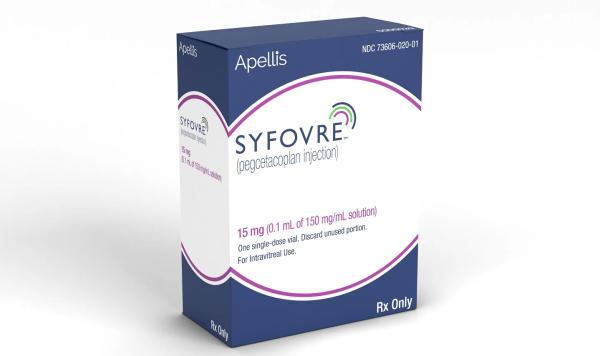The most recent development for age-related macular degeneration (ARMD) is a treatment for a specific form of dry ARMD. This form, called Geographic Atrophy (GA), affects over 5 million people across the world, and is responsible for 20% of legal blindness in the United States. GA is characterized by a loss of central vision caused by the progressive loss of vital retinal cells in the macular region. Although nobody fully understands why GA occurs, there has been much research targeting some of the signals that may be involved in the propagation of GA.
The US FDA has just approved a new medication, Syfovre (pegcetacoplan, Apellis Pharm.) that specifically inhibits creation of a complex in the Complement cascade that is thought to be involved in the development of GA. Phase III trials showed up to a 22% reduced progression of GA in pegcetacoplan-treated individuals. The treatment is given as an intravitreal injection.
This is not a cure for dry ARMD. In fact, to date, there has been no evidence that the treatment actually stabilizes vision or slows vision loss. More data will be forthcoming in the next few years. It is, however, the first example of a treatment for dry ARMD that shows the potential to slow the process of GA.
Samuel Liu, MD, PhD, Director of Medical Retina at the Princeton Eye Group, is one of the first specialists offering consultations and treatments with Syfovre. Not every ARMD patient will be a candidate; only patients who are identified as having the GA form of dry ARMD will qualify for possible treatment. Please contact our offices to schedule a Retina Consultation.

